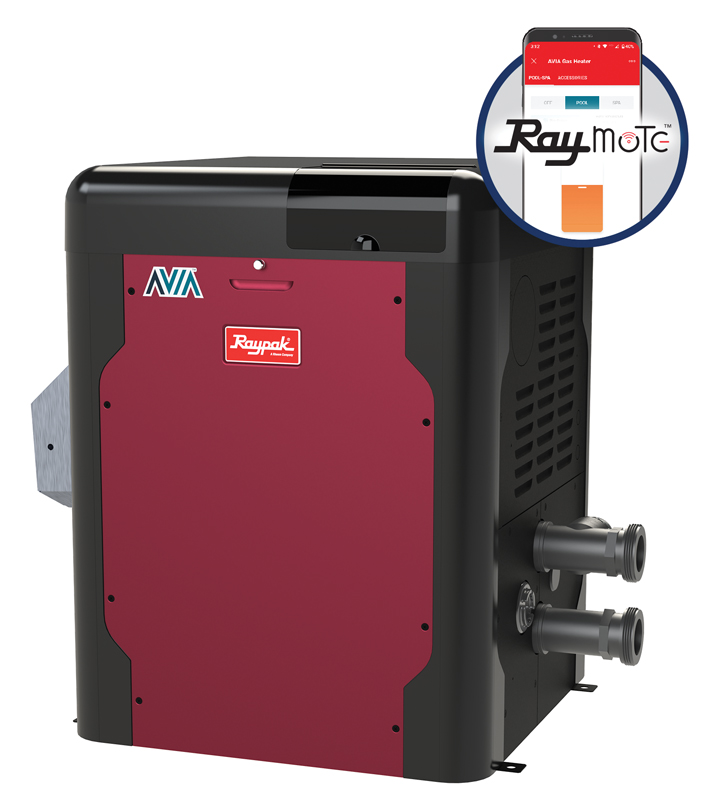Tools of the Leak Trade
Niche service requires special equipment

Leak detection can be an integral part of a pool professional’s repertoire. One of the most important aspects is knowing which tools to use to get the job done.
Lance Anderson, owner of Anderson Manufacturing Co., a leak detection equipment manufacturer in Saint Paul, Minnesota, says there are multiple tools needed before a company can offer this important service. “While many leaks can be found by using a simple dye testing kit without getting in the water, if you’d like to offer leak detection as a complete service, we recommend investing in a more complete package of equipment that includes a pressure testing kit, electronic listening device and diving equipment,” Anderson says. “Depending on what part of the country you are in, the addition of a hydrophone or electronic vinyl-liner leak detector will make your work more efficient.”
“With modern listening technology, leak detections can be performed in under an hour and technicians can stay dry while getting the job done right,” says Joe Dolan, director of communications for LeakTronics, a leak detection equipment manufacturer in Aurora, California.
[letsinfoup]
Dolan says proper leak detection equipment starts with a sensitive and powerful amplifier. LeakTronics’ LT-1000 is the heart of all LeakTronics detection kits. “The LT-1000 Amplifier delivers power to the PC boards in the listening equipment that decipher sound frequencies and deliver accuracy when hearing leaks, while filtering out ambient distractions,” Dolan says.
Sub-surface listening equipment such as deck plates and soil probes are also essential, Dolan adds. These, in addition to LeakTronics’ Pool Scope Hydrophone, Pipe Mic and Pressure Rig, round out what Dolan would consider essential for venturing into pool leak detection. He adds that training with the equipment is also important.
Christine Pearson, owner of Excalibur Leak Detection in Columbia, Maryland, echoes the importance of training. “You don’t necessarily need to invest in the expensive training packages just to get started,” she says, “but ideally you should attend a leak detection seminar at one of the pool conventions.”
From Pearson’s perspective as a service professional, the minimum equipment to begin offering leak detection is leak-testing dye and syringes, a diving flashlight and mirror and a set of dye testing cones.
“If you have a lot of vinyl-liner and/or fiberglass pools in your area, consider investing in an electric vinyl-liner scanner, the LeakTrac by Anderson Manufacturing for example,” Pearson says. “This will help you pinpoint issues in vinyl or fiberglass pools down to something the size of a pinhole with minimal effort.”
Pearson says Excalibur Leak Detection also incorporates listening devices such as the XLT-30 from Fisher Research Labs to help correlate leak locations. She says the kit comes with an electronic geophone (boot listening device) and a ground probe, as well as a hydrophone. It also has digital sound-level readouts.
However, not all tools are one-size-fits-all, says Truman Keesee Jr., owner of The Right Way Leak Detection & Repair in Springtown, Texas. “You need an array of different styles and types of plugs to plug off all the holes in areas in the pool,” Keesee says. “These plugs range from 1/8- to 8-inch diameter. You have regular standard plugs that block stuff off and also induction plugs that have a hose on top of them so you can blow air into the line.”
For the induction side, Keesee says a compressor or air tank can be used to pressure up the lines. “I prefer dive tanks because they hold a massive amount of air,” he says. “At that point, you also need dive certification so that you can purchase and fill dive tanks.”
Dive equipment, certification and other necessary leak detection equipment is an investment, but Pearson says it can be profitable and rewarding if mastered.
“There are lots of other pieces of equipment you could add to your arsenal as you become a more experienced leak detective, but consider starting with the basics and adding tech as your proficiency grows,” Pearson says. “Leak detection is as much an art as it is a science.”


LeakTronics LT-1000 Amplifier 
Anderson LeakTrac 2400 
LeakTronics Pool Scope Hydrophone






